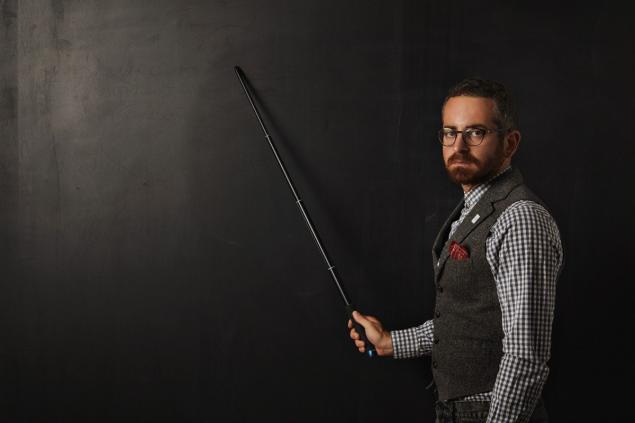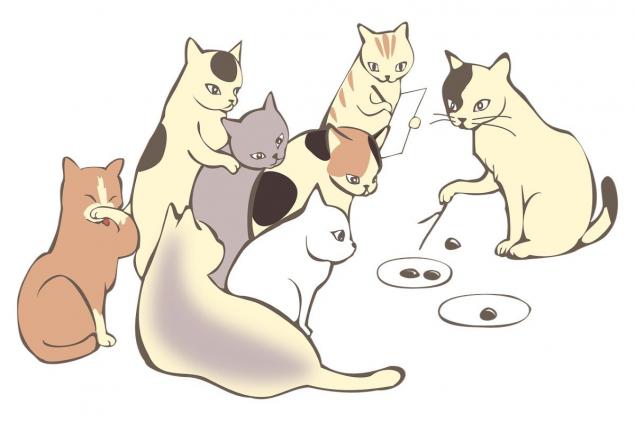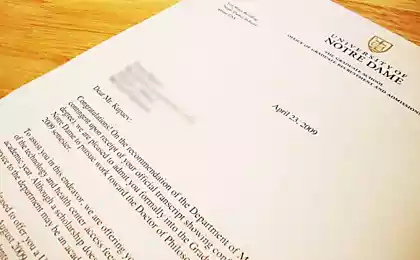244
Mistakes that piss off a Russian teacher
We all make mistakes periodically, including misspelling, word combinations, text. Let me tell you a little secret, reader. Almost every editor of our project has a philological education. In addition, our wonderful leadership periodically invites a teacher of Russian to study with us.
And the proofreaders work with our texts after we supposedly "lick" them. And yet, when I read the comments under my material, I see the comments. They find the small and gross mistakes I made. Thank you very much, I’m going back to the article and I’m going to rule. What do I mean? In addition to relying on basic human understanding, you are ready to improve yourself and want to help others.

© Freepik Mistakes in spelling words on April 10 in Russia and other countries of the world was held an action in support of literacy and popularization of the Russian language. "Total dictation".
Bloggers Zen Olesya Kondakova, author of the channel “Take care of speech”, and philologist Nikolai Polkovsky, author of the channel “Literacy”, chose 7 common mistakes that we see all over the Internet, and then explained how to write correctly. How often do you make mistakes in these words?

"What city are you from?" One of the mistakes that just piss off philologists. This is often the sin of the support services of any service or bank, asking “write the region from which you are referring.”
Incorrect use of an excuse is the most common mistake.
How is that right? Name the region from which you are applying, from which region do you write to us?, In which region are you located?
Remember! If "c", then write "from". If the "on" is the "s." Here are examples: in St. Petersburg - from Peter, on Capri - from Capri, on the moon - from the moon.

"We are living in 2021" You can often see this in correspondence, posts in social networks, as well as in congratulations from politicians. It would seem small, but how cuts the eye of a literate person!
Correctly write "2021" without increasing the end of the numeral.
"You'll laugh!" In writing, my friends very often make mistakes in spelling -sit, and -say in verbs.
Although school-law Nobody's canceled yet. If the verb answers the questions “what is doing?”, “what will he do?”, we do not write a soft sign, it is not necessary here, since it is not in the question. Conversely, if the word answers the questions “what to do?”, “what to do?”, then a soft sign is written in it.
It's easy, isn't it?

© Freepik "During time or through the river?" Transportation services often forget another simple rule from the school curriculum.
Write correctly“In the course of time, in the course of such and such a period.” But his twin brother “in the flow” should be used when referring to the flow of the river or the direction of art.
"We have to sit down with the kids!" The error in writing this word is due to the fact that at the root there is an unstressed vowel. Comparison: “sitting with children” and “sitting with children”. In fact, both scenarios are quite likely, but the first somehow scares less, agree.

© Freepik What will help avoid a mistake? Choose a test word in which the desired vowel will be under stress. For the same “sitting” it will be the adverb “sitting”, and for “sitting” is already, for example, the adjective “seedy”.
You'll call me. Can I leave the dot? This error in punctuation is a frequent occurrence. Someone is in a hurry and forgets to put a question mark at the end, someone never bothers about it at all. Familiar?
Then you have to wonder if it was a question or a statement.
Yes, undoubtedly, some rules of punctuation in correspondence on the Internet differ from the conventional. Many people simply do not put an end to the message. After all, this punctuation mark in colloquial network speech has acquired the meaning of a certain aggression. And then the point at the end of the message may indicate to the interlocutor a hidden subtext: any rudeness, discontent or that the conversation is over.

"Would you like a cake?" Mistakes in verb endingsAs you can see, it leads to confusion and substitution of concepts.
One wrong move, your missed attention, and now you are no longer “eating a cake”, but “waking a cake to eat it”.
In order not to get confused in the endings, just remember to start. conjugation. Google it! At the end of the verbs of the first conjugation, as a rule, the letter "e" is written, the second - the letter "and".
From the editor Olesya Kondakova and Nikolai Polkovsky He has been awarded the Total Dictation three times. On their channels, they share the meanings of phraseology, for example, what is “Gulkin nose”, create collections of funny mistakes in advertising, and also explain the rules of the Russian language on examples from movies, Internet memes and literature. Very interesting!

Do you understand why this is so important to know?
And I really wonder if attentive readers will find mistakes in this text. Don't be shy, write. The authors try to see and work on it. What else? blundering Do you often notice? Leave your comments.
And the proofreaders work with our texts after we supposedly "lick" them. And yet, when I read the comments under my material, I see the comments. They find the small and gross mistakes I made. Thank you very much, I’m going back to the article and I’m going to rule. What do I mean? In addition to relying on basic human understanding, you are ready to improve yourself and want to help others.

© Freepik Mistakes in spelling words on April 10 in Russia and other countries of the world was held an action in support of literacy and popularization of the Russian language. "Total dictation".
Bloggers Zen Olesya Kondakova, author of the channel “Take care of speech”, and philologist Nikolai Polkovsky, author of the channel “Literacy”, chose 7 common mistakes that we see all over the Internet, and then explained how to write correctly. How often do you make mistakes in these words?

"What city are you from?" One of the mistakes that just piss off philologists. This is often the sin of the support services of any service or bank, asking “write the region from which you are referring.”
Incorrect use of an excuse is the most common mistake.
How is that right? Name the region from which you are applying, from which region do you write to us?, In which region are you located?
Remember! If "c", then write "from". If the "on" is the "s." Here are examples: in St. Petersburg - from Peter, on Capri - from Capri, on the moon - from the moon.

"We are living in 2021" You can often see this in correspondence, posts in social networks, as well as in congratulations from politicians. It would seem small, but how cuts the eye of a literate person!
Correctly write "2021" without increasing the end of the numeral.
"You'll laugh!" In writing, my friends very often make mistakes in spelling -sit, and -say in verbs.
Although school-law Nobody's canceled yet. If the verb answers the questions “what is doing?”, “what will he do?”, we do not write a soft sign, it is not necessary here, since it is not in the question. Conversely, if the word answers the questions “what to do?”, “what to do?”, then a soft sign is written in it.
It's easy, isn't it?

© Freepik "During time or through the river?" Transportation services often forget another simple rule from the school curriculum.
Write correctly“In the course of time, in the course of such and such a period.” But his twin brother “in the flow” should be used when referring to the flow of the river or the direction of art.
"We have to sit down with the kids!" The error in writing this word is due to the fact that at the root there is an unstressed vowel. Comparison: “sitting with children” and “sitting with children”. In fact, both scenarios are quite likely, but the first somehow scares less, agree.

© Freepik What will help avoid a mistake? Choose a test word in which the desired vowel will be under stress. For the same “sitting” it will be the adverb “sitting”, and for “sitting” is already, for example, the adjective “seedy”.
You'll call me. Can I leave the dot? This error in punctuation is a frequent occurrence. Someone is in a hurry and forgets to put a question mark at the end, someone never bothers about it at all. Familiar?
Then you have to wonder if it was a question or a statement.
Yes, undoubtedly, some rules of punctuation in correspondence on the Internet differ from the conventional. Many people simply do not put an end to the message. After all, this punctuation mark in colloquial network speech has acquired the meaning of a certain aggression. And then the point at the end of the message may indicate to the interlocutor a hidden subtext: any rudeness, discontent or that the conversation is over.

"Would you like a cake?" Mistakes in verb endingsAs you can see, it leads to confusion and substitution of concepts.
One wrong move, your missed attention, and now you are no longer “eating a cake”, but “waking a cake to eat it”.
In order not to get confused in the endings, just remember to start. conjugation. Google it! At the end of the verbs of the first conjugation, as a rule, the letter "e" is written, the second - the letter "and".
From the editor Olesya Kondakova and Nikolai Polkovsky He has been awarded the Total Dictation three times. On their channels, they share the meanings of phraseology, for example, what is “Gulkin nose”, create collections of funny mistakes in advertising, and also explain the rules of the Russian language on examples from movies, Internet memes and literature. Very interesting!

Do you understand why this is so important to know?
And I really wonder if attentive readers will find mistakes in this text. Don't be shy, write. The authors try to see and work on it. What else? blundering Do you often notice? Leave your comments.
The transformation of a shabby kitchen for Easter, the house will return to a clean place
Wives of Hollywood beauties, on which nature rested























